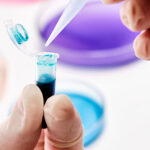
Attention-Deficit/Hyperactivity Disorder (ADHD) is a neurodevelopmental disorder characterized by symptoms of inattention, hyperactivity, and impulsivity. It affects both children and adults, posing challenges in various aspects of life. However, with the right treatment approach, individuals with ADHD can lead successful and fulfilling lives. This extensive guide delves into the various aspects of ADHD treatment, providing valuable insights for those affected and their loved ones.
What is ADHD?
ADHD is not just a childhood disorder; it can continue into adulthood. It often manifests in difficulties with concentration, organization, and staying on task. Hyperactivity and impulsivity can also be prominent features. Understanding ADHD is crucial for effective treatment and management.
Treatment for ADHD typically involves a combination of medication, behavioral therapy, lifestyle changes, and educational support. It’s essential to tailor the treatment plan to the individual’s needs, as what works for one person might not be as effective for another.
Learn more about the three types of ADHD by visiting our ADHD Guidelines page.
Medication
Medications are often a core component of ADHD treatment. The most common types are stimulants, which have been found to be highly effective in reducing symptoms in children and adults. Non-stimulant medications are also available and may be used in cases where stimulants are not suitable or have not been effective.
- Stimulants: These include medications like methylphenidate (Ritalin, Concerta) and amphetamines (Adderall, Vyvanse). They work by increasing the levels of certain neurotransmitters in the brain, which helps improve concentration and focus.
- Non-Stimulants: These can include drugs like atomoxetine (Strattera) and certain antidepressants. They are an alternative for those who do not respond well to stimulants.
It’s important to work closely with a healthcare provider to find the right medication and dosage. For more information on ADHD medications, visit the American Academy of Child & Adolescent Psychiatry.
Behavioral Therapy
Behavioral therapy is another cornerstone of ADHD treatment, especially for children. This therapy focuses on changing negative behaviors into positive ones and can involve:
- Behavior Modification: Techniques such as positive reinforcement and time-out strategies.
- Cognitive Behavioral Therapy (CBT): Helps in managing emotions and developing coping strategies.
- Parent Training: Educates parents on how to support their child with ADHD effectively.
The Child Mind Institute offers valuable resources on behavioral therapies for ADHD.
Lifestyle Changes
Lifestyle changes can significantly impact ADHD symptoms. These include:
- Regular Exercise: Physical activity can help improve concentration and decrease impulsivity and hyperactivity.
- Healthy Diet: A balanced diet can play a role in managing ADHD symptoms. Some research suggests that certain food additives and sugar might exacerbate symptoms in some individuals.
- Sleep Hygiene: Adequate sleep is essential for managing ADHD symptoms. Establishing a regular sleep routine can help.
For more information on lifestyle changes for ADHD, CHADD (Children and Adults with Attention-Deficit/Hyperactivity Disorder) is an excellent resource.
Educational Support
For children with ADHD, educational support is crucial. This may include:
- Individualized Education Programs (IEPs): Tailored plans that address a child’s unique learning needs.
- 504 Plans: Provide accommodations to help students with ADHD succeed in the classroom.
The U.S. Department of Education website has information on educational support for children with ADHD.
Challenges in ADHD Treatment
Treating ADHD can be challenging due to:
- Variability of Symptoms: ADHD symptoms can vary widely from person to person.
- Coexisting Conditions: Many individuals with ADHD also have other disorders, such as anxiety or depression, which can complicate treatment.
- Stigma: Misunderstandings about ADHD can lead to stigma, making it harder for individuals to seek help.
The Importance of a Support System
Having a strong support system is vital in managing ADHD. This includes family, friends, teachers, and healthcare professionals who understand the challenges and provide encouragement and understanding.
Future of ADHD Treatment
Research into ADHD is ongoing, and new treatments are being developed. Advances in understanding the genetic and neurological bases of ADHD are opening new avenues for treatment.
ADHD treatment is multifaceted and requires a personalized approach. It’s about finding the right combination of medication, therapy, lifestyle changes, and support. With effective management, individuals with ADHD can lead productive and fulfilling lives.
For more information on ADHD and its treatment, visit the National Institute of Mental Health (NIMH).
Please read our guide to ADHD testing in Michigan.




